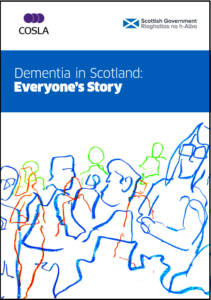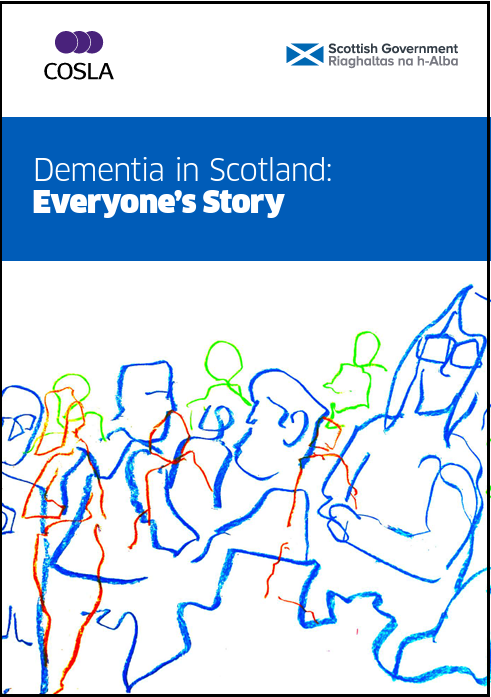Scotland’s new Dementia Strategy and SDS

The Scottish Government have published a new strategy which sets out 10-year plan to deliver a better experience for people living with dementia, their families and carers.
The strategy sets out a number of aims that describe the “difference we need to make” in order to improve things. These cover a range of topics including challenging stigma, improving diagnosis and post diagnostic support, and around the hospital experience.
Dementia and SDS
An important part of support for people living with dementia and their carers, is support to help them lead an independent life, and to have control over how that support is delivered.
The strategy highlights a number of goals to improve access to Self-directed Support (SDS) for people living with dementia and their carers over the next ten years. These include the ambition to:
- Maximise equal access to Self-Directed Support (SDS) that increases choice of support and care
- Ensure people are informed about SDS options when their need for care is identified, recognising the role of care partners in supporting a direct payment and including the purpose of Option 2 to maintain choice and control when capacity is reduced
- Ensure flexible care and support is available to all unpaid carers/ care partners, including ‘day services’ and respite, following an SDS assessment
- Ensure that people living with dementia and their care partners/ unpaid carers are informed of and supported to access all SDS options where this is appropriate and identified through the support plan
- Better involve care partners/ unpaid carers in planning support to meet their needs, including planning for when their caring role ends.
With research predicting that there may be a 50% increase in the number of people with dementia over 65 over the next 20 years, we recognise that there is likely to be an increase in demand for social care support services for people living with dementia and their carers. We also know that those currently living with dementia face barriers to accessing SDS in order to have choice and control over their support, and we already respond to a high number of enquiries every year from people looking for advice and support in this area.
Over the coming year, Self Directed Support Scotland will conduct a scoping exercise to find out more about the barriers that people living with dementia face in accessing SDS, and make recommendations for work that can address these. We hope this work will inform the development of delivery plans that will support the dementia strategy.
You can read more about the new dementia strategy for Scotland, Everyone’s Story, on the Scottish Government website.

